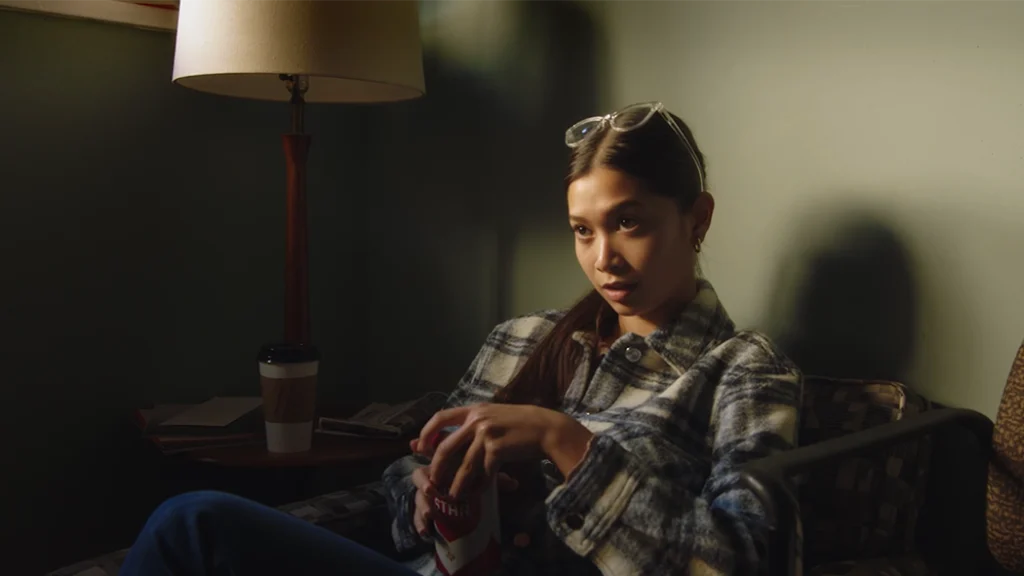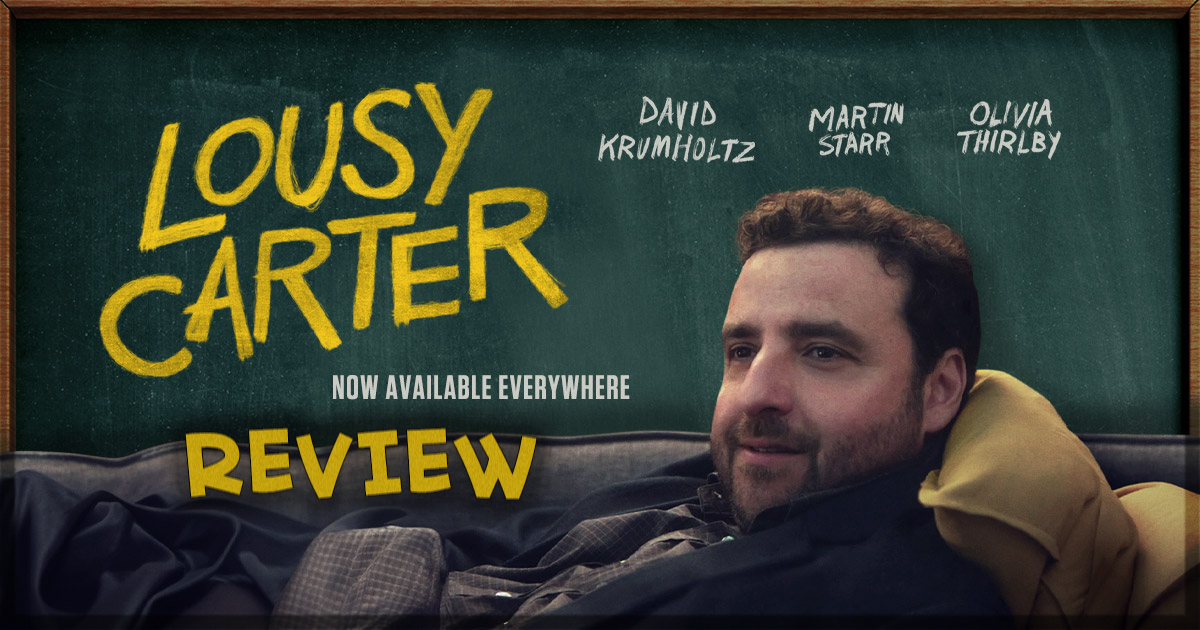Sardonic humor can be a difficult feat to accomplish in media. Very few feature films or television series have made that humor engaging. HBO’s Curb Your Enthusiasm is one of the only successful examples. Larry David’s unfiltered nature has set a high bar for curmudgeon-leading men. That has made films with those types of characters challenging to accomplish. A new indie film, Lousy Carter, attempts a similar mean-spirited and snarky feat.
David Krumholtz as the Ultimate Curmudgeon in Lousy Carter
The film stars David Krumholtz as the character “Lousy Carter,” dealing with numerous issues in his life. This includes struggling to adapt works from Russian Poet Vladimir Nabokov while teaching a graduate seminar on The Great Gatsby. At the same time, he is having an affair with his best friend’s (Martin Starr) wife (Joselyn DeBoer) and finds out he has six months to live. This puts Lousy in a time crunch to get his affairs in order. Over 80 minutes, Lousy attempts to make peace with those in his orbit. For that to remain engaging, the film has to complete one job. It must make the protagonist’s journey enjoyable without making him likable.
Krumholtz accomplishes that difficult feat as Lousy, who experiences all kinds of drama throughout. In a different story, Lousy’s finding out he has six months to live could lead to melodrama. While unlikable, his selfish and self-obsessive nature serves as a benefit to the film. Viewers want to see if he can make peace with those he has continuously wronged. Each interaction allows Krumholtz to showcase a darkly hilarious lack of emotional maturity. This includes mining the comedy to its most awkward and uncomfortable degree. That awkwardness can also be attributed to writer and director Bob Byington.

Bob Byington’s Cast of Characters Keeps the Snark Flowing
Byington crafts a richly defined world for Lousy Carter, which extends to those who enter his orbit. The “lousiness” hides real vulnerability, not just for Lousy but for those around him. Byington’s screenplay and direction force the supporting characters to have a similarly sardonic sense of humor. If that style of comedy resided solely in the protagonist, it could hurt the overall pace. The supporting performances have to counter-balance Lousy and take him to task. Byington’s screenplay allows each supporting performance to do that very thing.
Actors like Olivia Thirlby, Martin Starr, Joselyn DeBoer, and Stephen Root attempt to ground Lousy. Keeping him grounded involves being as unfiltered about things as he is. One of the funniest examples is Lousy’s interactions with Candela (Thirlby). Her profanity-riddled nature helps Lousy face needed truths. What makes these moments comical is that her profanity gets bleeped throughout. It’s an arguably shocking bit of comedy that lands thanks to Thirlby’s deadpan line delivers. Similarly, DeBoer and Starr accomplish the same feat, except they are more directly involved in the story. Lousy’s affair with Olivia (DeBoer), his best friends (Starr) wife, helps him understand his immaturity.
Luxy Banner: A Breakout Talent
One character remains an enigma in Lousy’s journey of reconciliation: one of his students, Gail. Played by newcomer Luxy Banner, she serves as both an enigma and answer to Lousy’s problems. To avoid spoilers, her character serves a rather raunchy purpose in the story. This purpose involves something Lousy wants from her, but it is easier said than done. Unlike everyone else in the story, Gail has both maturity and sophistication. That works to give Lousy an entirely different insight into his problems. Thankfully, her purpose does not unfold in the way that the film initially established.
Banner shows natural talent and fits seamlessly into the mean-spirited and funny world. Her performance proves she is someone audiences should keep an eye on. Her ability to match Krumholtz’s comedic stylings delivers some of the film’s most enjoyable moments. It is simply exciting to watch her verbally spar with other characters and build out her relationship with Lousy. The overall success of the performances helps make for an enjoyably awkward 80 minutes. That does not mean the film is without problems.

Lousy Carter Is A Satisfying Journey… Until the End?
At that running time, some could feel unsatisfied by Lousy’s story’s conclusion. The third act has several surprises, like specifics within individual characters’ stories and the general outcome. Some of these rather large swings could feel rushed for specific audiences. While consistently funny, such choices have an air of shocking unpredictability. They help give the familiar story a freshness at its core. The problem involves those choices feeling abrupt. They have no build-up, making their reveals feel inconsequential and generally less effective in the long run.
Lousy Carter is a rare example of a film that knows exactly what it is. The story wants viewers to find an emotional catharsis through a world filled with cynicism and narcissism. That does not mean the film is without its enjoyable merits. Across the board, the performances deliver continuously funny results. David Krumholtz undoubtedly leads the charge to an exciting degree but works in perfect unison with supporting performances. Its running time could make some forgive its narrative shortcomings. This includes big, third-act twists and reveals that could hinder some viewer’s enjoyment. Those looking for quirky and entertaining indie filmmaking should look no further. While it does not reinvent the wheel, Lousy Carter delivers what dry-witted indie cinema does best.


